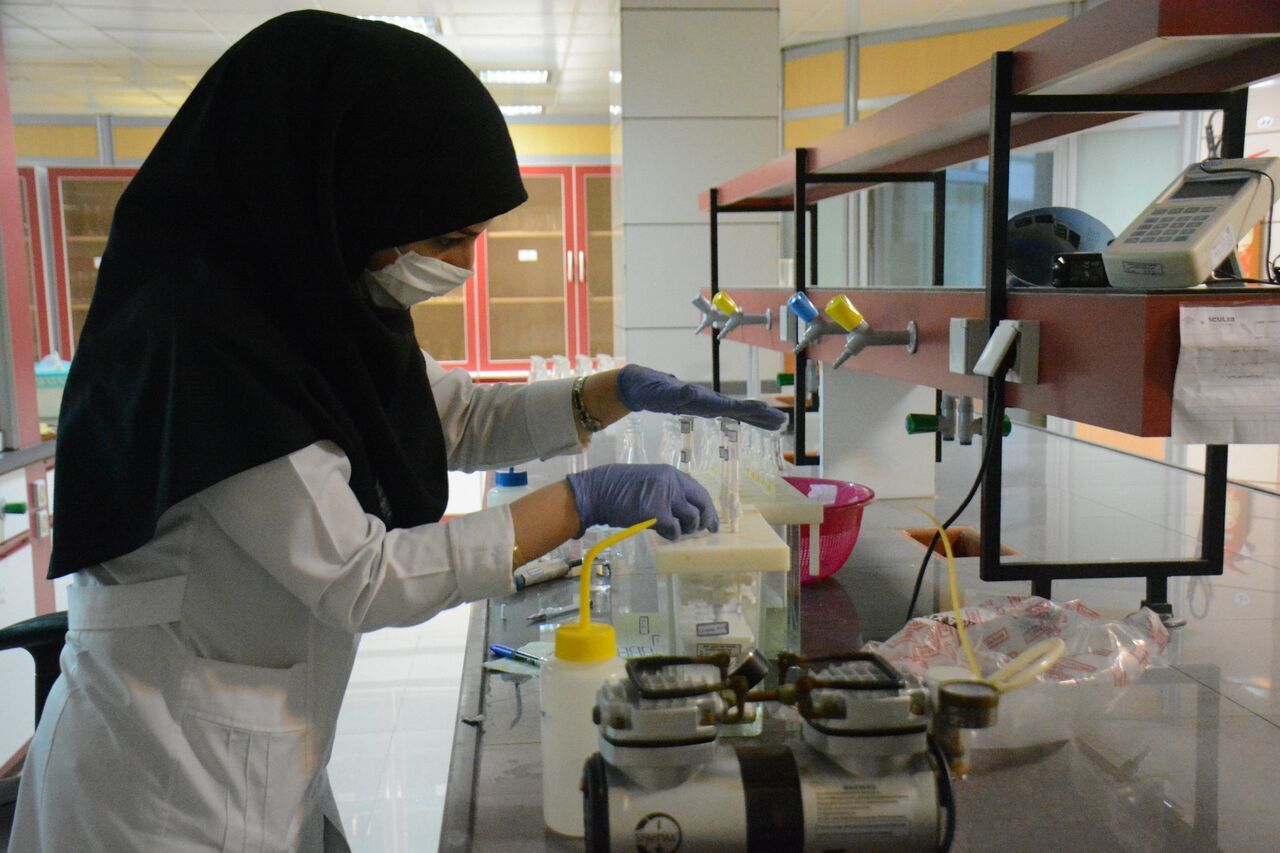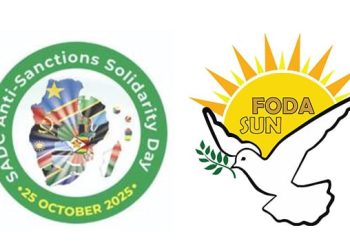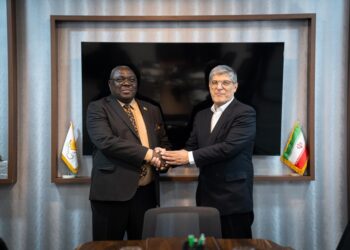The recent scientific achievements of Iranian women have significantly influenced Iranian society and beyond. These accomplishments have not only made notable contributions in specialized scientific fields but have also resulted in broad repercussions in policy-making, the economy, and culture. This article explores three primary aspects of the impact of these achievements: their influence on scientific policy-making, their role in developing a knowledge-based economy, and their importance in establishing role models for future generations. This analysis illustrates how the accomplishments of Iranian women scientists, transcending scientific boundaries, have catalyzed positive societal changes and opened new avenues for the country’s progress and development.
Impact on Scientific Policy-Making
The prominent and successful presence of Iranian women scientists in international arenas has significantly influenced scientific policy-making in Iran. These achievements have heightened awareness regarding the necessity of supporting women in scientific and research fields. For instance, the Ministry of Science, Research and Technology of Iran has initiated specialized programs to increase women’s participation in major national research projects.
Consequently, more supportive policies have been developed and implemented to encourage and assist women in scientific and academic institutions. These policies encompass the expansion of educational quotas, the establishment of equitable job opportunities, and the allocation of dedicated research budgets for projects led by women. For example, the Iran National Science Foundation has designated a specific budget to support research initiatives spearheaded by women scientists (Tehran Times, 2023, https://shorturl.at/r3JNf). The enhancement of supportive policies, including increased research funding for projects led by women scientists and the introduction of specialized programs to assist women at various stages of research and scientific work, is particularly noteworthy in this context.
This trend has resulted in a heightened presence of women in managerial and decision-making positions within scientific and academic fields. Currently, we observe a greater involvement of women in scientific policy-making councils, university evaluation boards, and specialized committees of the Ministry of Science. This participation has facilitated the adoption of more balanced policies and has ensured the consideration of women’s specific needs and challenges in scientific environments.
The impact of these advancements on educational policies has also been considerable. Curricula and educational programs in schools and universities have been revised to encourage more girls and young women to pursue scientific and technical fields. For instance, the organization of special science olympiads for girls and the establishment of specialized science and technology schools for girls are among these initiatives (Iran Press, 2024, https://shorturl.at/ex0Qp). Furthermore, there has been increased attention to the development of educational infrastructure, which includes greater investment in foundational science education for girls from an early age, the creation of specialized science and technology schools and educational centers for girls, and the development of online educational programs to enhance access to advanced scientific education for women and girls.
Furthermore, these achievements have prompted revisions to policies concerning international collaborations. The Iranian government and scientific institutions have introduced specialized programs aimed at facilitating the involvement of women scientists in international projects and study opportunities abroad. This initiative has contributed to increased scientific exchanges and enhanced Iran’s standing within global scientific communities.
The accomplishments of Iranian women scientists have fostered the development and reinforcement of supportive policies designed to balance personal and professional responsibilities. These policies encompass establishing university daycare centers, flexible working hours, and providing special leave for working mothers in scientific settings. Such measures have not only helped to maintain but also to enhance the position of women in scientific fields, paving the way for their continued success (UN Women, 2020, https://shorturl.at/shJXP). It is important to note that the establishment of monitoring and evaluation systems to assess the effectiveness of supportive policies for women scientists, along with the conduct of regular research to identify challenges and barriers faced by women in scientific disciplines, and the continuous review and updating of policies and programs based on feedback and evaluation outcomes, will be instrumental in the ongoing improvement of these initiatives.
Development of a Knowledge-Based Economy
The success of Iranian women scientists in global scientific communities has positively impacted the development of the knowledge-based economy in Iran. Their research and innovations in various fields, including biotechnology, nanotechnology, and information technology, have contributed to the creation and growth of knowledge-based companies. This progress has not only led to job creation for university graduates but has also diversified Iran’s economy and reduced its dependence on oil revenues. Furthermore, the international achievements of these women have attracted the attention of foreign investors to Iran’s scientific and technological potential, paving the way for greater economic and technological collaboration (Cistc, 2024, https://shorturl.at/bvY3F).
The knowledge-based economy, as a new economic paradigm, is founded on the production, distribution, and application of knowledge and information. In this economic model, innovation and creativity play vital roles in economic growth and development. In recent years, Iran has focused on this area and, by supporting knowledge-based companies, is working to strengthen this sector of the economy. In this context, the contributions of Iranian women scientists to the advancement of the knowledge-based economy have been significant. These scientists, through their active engagement in various scientific fields, including nanotechnology, biotechnology, artificial intelligence, and medical sciences, have achieved notable accomplishments at both national and international levels. The success of Iranian women scientists has not only enhanced the country’s scientific standing but has also facilitated international collaborations and attracted foreign investment in knowledge-based sectors. This, in turn, has substantially contributed to strengthening the country’s scientific and technological infrastructure.
The recognition of women’s capabilities within society, particularly following their scientific achievements, can foster the establishment of equal opportunities for women across various scientific and economic sectors, ultimately benefiting the nation’s knowledge-based economy. Currently, we are observing a rise in the number of women occupying managerial positions at universities, research centers, and knowledge-based enterprises. It is essential to acknowledge that the successful participation of Iranian women scientists in global scientific communities necessitates ongoing support from both the government and the private sector. Enhancing educational and research infrastructures, creating equitable opportunities for women in scientific environments, and backing their innovative ideas can facilitate the continuation and expansion of this trend, yielding a positive impact on the country’s knowledge-based economy.
Professor Maryam Mirzakhani’s accomplishments in dynamic geometry and the theory of Riemann surfaces, in addition to her theoretical contributions, have significant applications in theoretical physics and engineering (International Mathematical Union, 2024, https://shorturl.at/rbn7U). Anousheh Ansari, the first Iranian-born female space tourist and a pioneer in the private space industry, has played a crucial role in advancing the knowledge-based economy in the space sector through her investments and management in cutting-edge technology companies (Britannica, 2024, https://shorturl.at/Uj0T4).
Professor Somayeh Yousefi, a distinguished researcher in nanotechnology and a faculty member at Rice University in the United States, has made significant advancements in cancer treatment through her research on nanoparticles and their applications in medicine. These achievements hold considerable potential for commercialization and positively impact the knowledge-based economy (ResearchGate, 2024, https://shorturl.at/pErrc).
Hanie Sedghi, a specialist in artificial intelligence and machine learning at Google, has made substantial contributions to the information technology industry through her research in natural language processing and deep learning, resulting in the development of innovative products and services (Hanie Sedghi, 2024, https://haniesedghi.com).
These examples illustrate that Iranian women scientists, by engaging in advanced scientific and technological fields, have not only contributed to the global advancement of knowledge but have also paved the way for the development of innovative products and services that can directly impact the knowledge-based economy.
Role Modeling for Future Generations
The success of Iranian women scientists in international arenas has had a profound impact on the new generation of Iranian girls and young women. These achievements serve as powerful role models, demonstrating that Iranian women can excel at the highest levels of global science. For instance, Maryam Mirzakhani’s global recognition has significantly heightened interest in mathematics among Iranian girls. This role modeling has inspired young girls to pursue careers in scientific fields, particularly in STEM (Science, Technology, Engineering, and Mathematics). Recent statistics indicate a marked increase in the number of girls enrolling in engineering and basic sciences at Iranian universities. This trend reflects the positive influence of successful female role models within Iran’s scientific community (Irna, 2024, https://en.irna.ir/amp/85593064).
Moreover, the achievements of Iranian women scientists have contributed to changing traditional societal attitudes regarding women’s capabilities in scientific disciplines. This shift has resulted in greater family and social support for women’s education and research endeavors. Consequently, many families now actively encourage their daughters to pursue higher education in scientific and engineering fields.
The role modeling of Iranian women scientists has transcended national borders, influencing scientific communities in various countries. Their success in international arenas has fostered a positive perception of the scientific capabilities of women in West Asia and underscored their scientific standing. This has resulted in increased international scientific collaborations and expanded opportunities for women scientists in the region. Interviews, lectures, and the participation of Iranian women scientists at scientific events have inspired a new generation of girls and young women. For instance, TED Talks presented by Iranian women scientists have garnered millions of views and have made a significant impact on global audiences (Tedxtehran, 2023, https://shorturl.at/gg0pU).
Furthermore, this role modeling has facilitated the establishment of support networks and mentoring programs for young women in scientific fields. Many accomplished Iranian women scientists are actively involved in mentoring initiatives and educational workshops for students and researchers. These efforts contribute to a positive cycle of inspiration and support, paving the way for greater success for women in scientific disciplines. Consequently, mentoring and networking programs are being pursued more vigorously than ever, including the creation of national and regional networks of women scientists for the exchange of experiences and collaboration, mentoring initiatives for girls and young women interested in science and technology, and inspiring educational workshops and seminars featuring successful women scientists in the field.
Given the significant impact of Iranian women’s successes on role modeling, enhancing public awareness will further strengthen this influence. Implementing media campaigns to highlight the achievements of Iranian women scientists, incorporating success stories into textbooks and educational materials, and supporting the production of media content -such as films, documentaries, and podcasts- focusing on women in science and technology will contribute positively to this initiative.
Conclusion
The scientific achievements of Iranian women in international arenas have had widespread and profound effects on Iranian society. These accomplishments have not only led to changes in scientific and supportive policies but have also played a crucial role in the development of a knowledge-based economy and in creating successful role models for future generations.
In the realm of policy-making, we are witnessing the development and implementation of more supportive programs for women in scientific and academic centers. These changes have resulted in an increased presence of women in managerial and decision-making positions within scientific fields. Additionally, educational policies have been revised to encourage girls to pursue careers in scientific and technical disciplines.
In the area of the knowledge-based economy, the achievements of Iranian women scientists have contributed to the establishment and growth of knowledge-based companies, attracted foreign investment, and diversified the country’s economy. Notable examples such as Maryam Mirzakhani, Anousheh Ansari, Somayeh Yousefi, and Hanie Sedghi illustrate that Iranian women are capable of playing key roles in the advancement of science and technology and influencing the economy.
In terms of role modeling, the successes of Iranian women in science have profoundly impacted societal attitudes towards women’s capabilities and have significantly increased girls’ interest in STEM fields. Furthermore, these role models have contributed to the establishment of support networks for young women in scientific disciplines.
Overall, the scientific achievements of Iranian women signify a pivotal moment in both the scientific and social history of Iran. These accomplishments have not only enhanced the country’s scientific reputation but have also created pathways for positive developments across various social, economic, and cultural spheres. Sustaining this momentum and providing support to women scientists is essential for the sustainable and comprehensive progress of the nation. The achievements of Iranian women scientists demonstrate that investing in women’s education and empowerment yields benefits not only for women but for society as a whole. These successes will inspire future generations to pursue their scientific and professional aspirations and will play a crucial role in shaping Iran’s scientific and economic future.
Based on the analyses presented, several actions can be taken to strengthen and expand the positive impacts of Iranian women’s scientific achievements. These include enhancing international connections by expanding student and researcher exchange programs with a particular emphasis on women scientists, supporting the participation of Iranian women scientists in international conferences and scientific events, and facilitating international research collaborations focused on joint projects that include women scientists.
Furthermore, developing the entrepreneurship ecosystem is crucial. This can involve creating venture capital funds dedicated to supporting startups founded by women, organizing entrepreneurship events and competitions specifically for women in science and technology fields, and offering tax incentives for knowledge-based companies that appoint women to senior management positions.
The implementation of these actions can significantly bolster the representation of women in scientific and technological fields, ultimately leading to greater success and a deeper impact on Iranian society and the economy.
References
Tehran Times (2023), Women shine in scientific research, Accessible at: https://shorturl.at/r3JNf
Iran press (2024), Iranian Inventor Students Shine in UK Science Olympiad 2024, Accessible at: https://shorturl.at/ex0Qp
UN Women (2020), National Report on Women`s Status in the Islamic Republic of Iran, Accessible at: https://shorturl.at/shJXP
Cistc (2024), Iran vice president stresses women’s role in knowledge-based economy, Accessible at: https://shorturl.at/bvY3F
International Mathematical Union (2024), Fields Medals 2014, Accessible at: https://shorturl.at/rbn7U
Britannica (2024), Anousheh Ansari, Accessible at: https://shorturl.at/Uj0T4
Researchgate (2024), Somayeh Yousefi, Accessible at: https://shorturl.at/pErrc
Hanie Sedghi (2024), Hanie Sedghi, Accessible at: https://haniesedghi.com
Irna (2024), Iranian female scholars considerably increasing, Accessible at: https://en.irna.ir/amp/85593064
Tedxtehran (2023), TEDxTehran; 5 out of millions of Iranian Pioneer Women of the 21st century, Accessible at: https://shorturl.at/gg0pU





